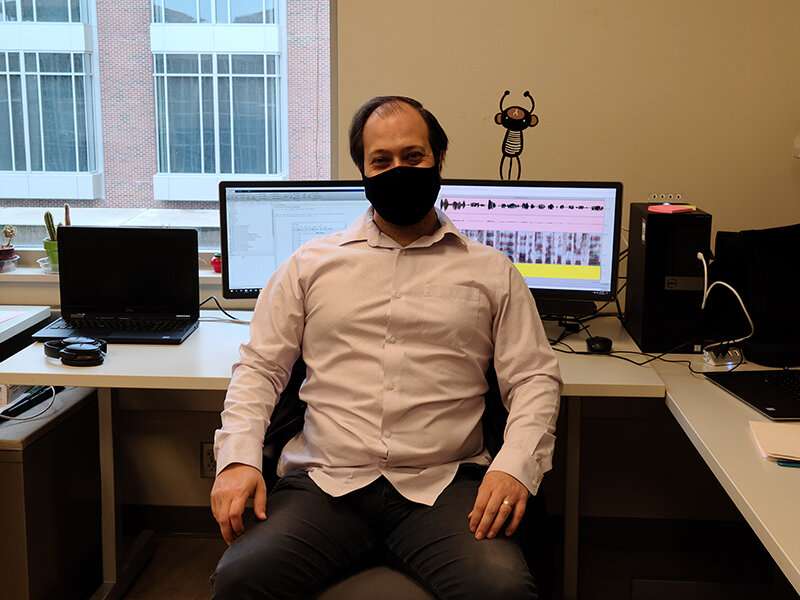Artificial intelligence technology helps Parkinson's patients during COVID-19 pandemic

The COVID-19 pandemic is leading a Purdue University innovator to make changes as she works to provide new options for people with Parkinson's disease.
Jessica Huber, a professor of Speech, Language, and Hearing Sciences and associate dean for research in Purdue's College of Health and Human Sciences, leads Purdue's Motor Speech Lab. Huber and her team are now doing virtual studies to evaluate speech disorders related to Parkinson's using artificial intelligence technology platforms.
Huber and her team have been working to develop telepractice tools for the assessment and treatment of speech impairments like Parkinson's disease. They received a National Institutes of Health small business innovation and research grant to develop a telehealth platform to facilitate the provision of speech treatment with the SpeechVive device, which has received attention at the Annual Convention of the American Speech-Language-Hearing Association.
In the current study, Huber and her team are collaborating with a startup company, Modality AI, which developed the AI platform that will be used in the study.
"The application of the technology we are evaluating may lead to far-reaching insights into more standardization in assessments, earlier diagnoses and possibly an easier way to track discrete changes over time to guide interventions," said Andrew Exner, a graduate research assistant in the Motor Speech Lab. "My personal research passion, and the mission of our lab, is to find ways to improve the quality of life for people with Parkinson's and other related diseases."
Exner is leading the virtual study for participants across the country to evaluate an AI platform that can collect and automatically measure the speech skills of people with Parkinson's disease. The need for AI platforms is increasing as the use of telepractice explodes as a result of the COVID-19 pandemic.
"My interest in speech-language pathology actually started during my training as an actor and opera singer," Exner said. "I saw the effects of pathology on the voice and wanted to extend that interest into speech disorders."
SpeechVive Inc. is an Indiana startup company based on Huber's research. The company has developed a wearable medical device to improve the speech clarity of people with Parkinson's.




















